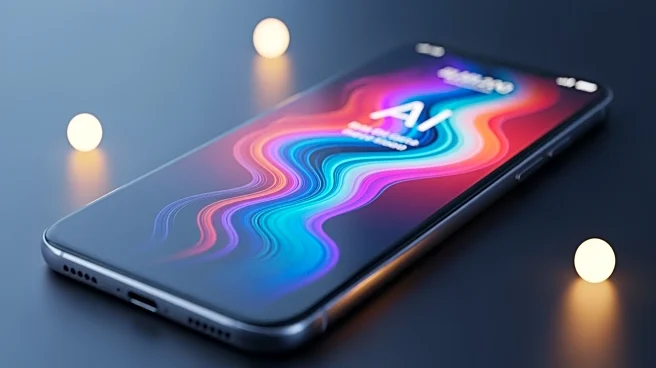What's Happening?
OpenAI has introduced a new social media platform called Sora, which is designed to offer users AI-generated content exclusively. Unlike traditional social media platforms, Sora does not display real-world news, advertisements, or user-generated memes.
Instead, every video on the platform is created by artificial intelligence. To access Sora, users must obtain an invite code, which can be acquired by downloading the app from the Apple App Store and signing up with a ChatGPT account. OpenAI is prioritizing access for its paying Pro users, although non-paying users can also gain entry. The app is currently available in the U.S. and Canada, with plans to expand to other countries. Android users can access Sora through a web browser using an invite code.
Why It's Important?
The launch of Sora represents a significant shift in how social media content is generated and consumed. By relying entirely on AI-generated videos, OpenAI is pushing the boundaries of digital content creation and challenging the traditional model of user-generated content. This development could have wide-ranging implications for the social media industry, potentially reducing the influence of human creators and altering the dynamics of content engagement. Additionally, the prioritization of Pro users for access may influence subscription models and user engagement strategies within the tech industry. As AI continues to evolve, platforms like Sora could redefine the landscape of digital interaction and content consumption.
What's Next?
OpenAI plans to expand Sora's availability beyond the U.S. and Canada, potentially increasing its user base and influence in the social media sector. The company is also offering users the ability to share invite codes with friends, which could accelerate the app's growth and adoption. As the platform gains traction, it may prompt other tech companies to explore similar AI-driven content models. Furthermore, OpenAI's ongoing legal challenges, such as the lawsuit from Ziff Davis, could impact its operations and future developments. Stakeholders in the tech industry will likely monitor Sora's progress and its effects on user engagement and content creation.
Beyond the Headlines
The introduction of AI-generated content on social media raises ethical and cultural questions about authenticity and the role of human creativity. As AI becomes more prevalent in content creation, concerns about the potential loss of human touch and originality may arise. Additionally, the reliance on AI-generated videos could lead to discussions about the accuracy and reliability of digital content, as well as the implications for privacy and data security. These considerations may influence public perception and regulatory approaches to AI in social media.














